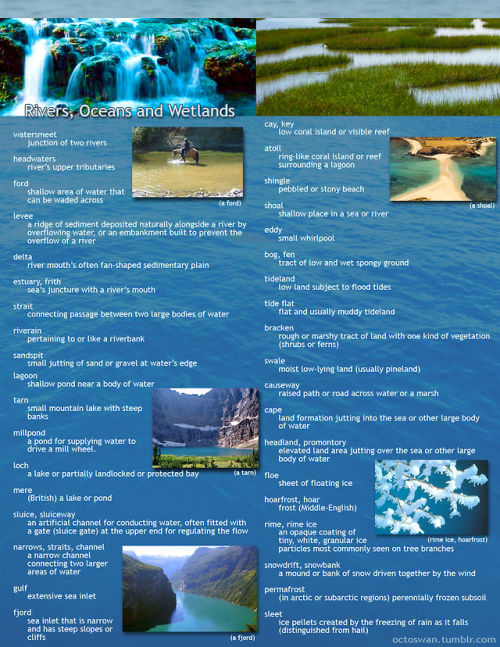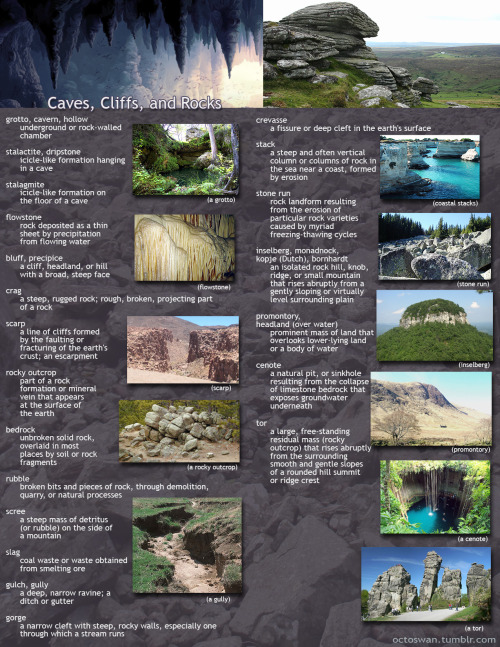WEIRDLY SPECIFIC BUT HELPFUL CHARACTER BUILDING QUESTIONS
WEIRDLY SPECIFIC BUT HELPFUL CHARACTER BUILDING QUESTIONS
What’s the lie your character says most often?
How loosely or strictly do they use the word ‘friend’?
How often do they show their genuine emotions to others versus just the audience knowing?
What’s a hobby they used to have that they miss?
Can they cry on command? If so, what do they think about to make it happen?
What’s their favorite [insert anything] that they’ve never recommended to anyone before?
What would you (mun) yell in the middle of a crowd to find them? What would their best friend and/or romantic partner yell?
How loose is their use of the phrase ‘I love you’?
Do they give tough love or gentle love most often? Which do they prefer to receive?
What fact do they excitedly tell everyone about at every opportunity?
If someone was impersonating them, what would friends / family ask or do to tell the difference?
What’s something that makes them laugh every single time? Be specific!
When do they fake a smile? How often?
How do they put out a candle?
What’s the most obvious difference between their behavior at home, at work, at school, with friends, and when they’re alone?
What kinds of people do they have arguments with in their head?
What do they notice first in the mirror versus what most people first notice looking at them?
Who do they love truly, 100% unconditionally (if anyone)?
What would they do if stuck in a room with the person they’ve been avoiding?
Who do they like as a person but hate their work? Vice versa, whose work do they like but don’t like the person?
What common etiquette do they disagree with? Do they still follow it?
What simple activity that most people do / can do scares your character?
What do they feel guilty for that the other person(s) doesn’t / don’t even remember?
Did they take a cookie from the cookie jar? What kind of cookie was it?
What subject / topic do they know a lot about that’s completely useless to the direct plot?
How would they respond to being fired by a good boss?
What’s the worst gift they ever received? How did they respond?
What do they tell people they want? What do they actually want?
How do they respond when someone doesn’t believe them?
When they make a mistake and feel bad, does the guilt differ when it’s personal versus when it’s professional?
When do they feel the most guilt? How do they respond to it?
If they committed one petty crime / misdemeanor, what would it be? Why?
How do they greet someone they dislike / hate?
How do they greet someone they like / love?
What is the smallest, morally questionable choice they’ve made?
Who do they keep in their life for professional gain? Is it for malicious intent?
What’s a secret they haven’t told serious romantic partners and don’t plan to tell?
What hobby are they good at in private, but bad at in front of others? Why?
Would they rather be invited to an event to feel included or be excluded from an event if they were not genuinely wanted there?
How do they respond to a loose handshake? What goes through their head?
What phrases, pronunciations, or mannerisms did they pick up from someone / somewhere else?
If invited to a TED Talk, what topic would they present on? What would the title of their presentation be?
What do they commonly misinterpret because of their own upbringing / environment / biases? How do they respond when realizing the misunderstanding?
What language would be easiest for them to learn? Why?
What’s something unimportant / frivolous that they hate passionately?
Are they a listener or a talker? If they’re a listener, what makes them talk? If they’re a talker, what makes them listen?
Who have they forgotten about that remembers them very well?
Who would they say ‘yes’ to if invited to do something they abhorred / strongly didn’t want to do?
Would they eat something they find gross to be polite?
What belief / moral / personality trait do they stand by that you (mun) personally don’t agree with?
What’s a phrase they say a lot?
Do they act on their immediate emotions, or do they wait for the facts before acting?
Who would / do they believe without question?
What’s their instinct in a fight / flight / freeze / fawn situation?
What’s something they’re expected to enjoy based on their hobbies / profession that they actually dislike / hate?
If they’re scared, who do they want comfort from? Does this answer change depending on the type of fear?
What’s a simple daily activity / motion that they mess up often?
How many hobbies have they attempted to have over their lifetime? Is there a common theme?
More Posts from Void-writes-stuff and Others
some people think writers are so eloquent and good with words, but the reality is that we can sit there with our fingers on the keyboard going, “what’s the word for non-sunlight lighting? Like, fake lighting?” and for ten minutes, all our brain will supply is “unofficial”, and we know that’s not the right word, but it’s the only word we can come up with…until finally it’s like our face got smashed into a brick wall and we remember the word we want is “artificial”.

Structuring Your Fight Scene
adapted from <Writer's Craft> by Rayne Hall
Suspense
Show your characters gearing up, readying themselves.
The pace is slow, the suspense is high (use suspense techniques)
Provide information about terrain, numbers, equipment, weapons, weather.
May have dialogue as the opponents taunt each other, hurl accusations, or make one final effort to avoid the slaughter.
Don't start too early - we don't need to see the hero getting out of bed, taking a shower and having tea.
2. Start
Fighters get into fight stance: knees slightly bent, one leg forward, abdominal muscles tensing, body turned diagonally, weapons at the ready.
Each side will usually try to be the first to strike, as this will give them advantage.
The movements in this section need to be specific and technically correct.
3. Action
This section may be quick or prolonged. If prolonged, no blow-by-blow descriptions are needed.
Focus on the overall direction of the fight
Make use of the location to make characters jump, leap, duck, hide, fall, etc.
Mention sounds of weapons
4. Surprise
Something unexpected happens: building catches fire, a downpour, relief force arrives, staircase collapses, bullet smashes into the only lightbulb and everything goes dark, hero losses his weapon, etc.
Add excitement, raise the stakes.
5. Climax
Both sides are tired and wounded
The hero is close to giving up, but is revived with passion
Move to the terrain's most dangerous spot: narrow swining rope-bridge, a roof-edge, sinking ship, etc.
Don't rush the climax! Hold the tension
6. Aftermath
The fight is over: bes buddies lying dead, bandaging, reverberating pain, etc.
Use sense of sight and smell
The hero may experience nausea, shaking, tearfulness or get sexually horny
Fight scene length
Historical/adventure/fantasy: 700-1000w
Romance: 400-700w
Ten origin stories for Dungeons & Dragons sorcerers that aren’t “my mom fucked a dragon”:
Sorcerer who attained their powers by practising bending reality to their will for thirty minutes every morning, and is honestly baffled when people try to explain that magic doesn’t work like that
Sorcerer who was incredibly unlucky and kept getting struck by lightning, and after the seventh or eight time it sort of stuck
Sorcerer who claims to be a god of calamity and ruin, and they’re actually telling the truth – they just happen to be a very small god of calamity and ruin
Sorcerer who tried some pipeweed they found in a beholder’s stash and experienced some unusual long-term effects
Sorcerer whose parents learned the hard way why you’re not supposed to get frisky on the night of a lunar eclipse (answer: because you end up with a baby who can conjure knives)
Sorcerer who’s a time traveller from an unimaginably distant future where people can just do that
Sorcerer who spent four minutes technically dead due to one of those incidents that begin with the phrase “watch this”, and woke up with slight brain damage and power over unearthly spirits
Sorcerer who’s been cursed to die in a fire, and the curse is fulfilling itself in an extremely roundabout way
Sorcerer who was supposed to be an ogre mage’s dinner, but the ogre mage had been brewing potions the night before and didn’t clean their cauldron before dunking the poor kid into the soup
Sorcerer who got so angry one day that they spontaneously developed the ability to set things on fire with their brain





I made these as a way to compile all the geographical vocabulary that I thought was useful and interesting for writers. Some descriptors share categories, and some are simplified, but for the most part everything is in its proper place. Not all the words are as useable as others, and some might take tricky wording to pull off, but I hope these prove useful to all you writers out there!
(save the images to zoom in on the pics)
“I was already a hedonistic creature, but with you around I can barely tear myself from this bed.”
🍂 september poems 🍂
September 1913, William Butler Yeats
The Imprint of September Second, Ethan Gilsdorf
September, Joanne Kyger
Drowning in September, Eric Pfeiffer
September, H Stuart
September Tomatoes, Karina Borowicz
One September Night, Franco Fortini
September Sunday, Lucille Broderson
September, 1918, Amy Lowell
September Midnight, Sara Teasdale
Monday, September 25, 2006, Susan Schultz
One September Afternoon, Leo Dangel
-
 mage-of-markarth reblogged this · 4 days ago
mage-of-markarth reblogged this · 4 days ago -
 veiledinice liked this · 4 days ago
veiledinice liked this · 4 days ago -
 babygirlchuuya liked this · 4 days ago
babygirlchuuya liked this · 4 days ago -
 jamiegeode liked this · 4 days ago
jamiegeode liked this · 4 days ago -
 doubledeckerwaffles reblogged this · 4 days ago
doubledeckerwaffles reblogged this · 4 days ago -
 pancakesonapan liked this · 4 days ago
pancakesonapan liked this · 4 days ago -
 greenestcoat liked this · 4 days ago
greenestcoat liked this · 4 days ago -
 umbracirrus reblogged this · 4 days ago
umbracirrus reblogged this · 4 days ago -
 umbracirrus liked this · 4 days ago
umbracirrus liked this · 4 days ago -
 archangelsunited reblogged this · 4 days ago
archangelsunited reblogged this · 4 days ago -
 mage-of-markarth reblogged this · 4 days ago
mage-of-markarth reblogged this · 4 days ago -
 allkuazoldyck liked this · 4 days ago
allkuazoldyck liked this · 4 days ago -
 allkuazoldyck reblogged this · 4 days ago
allkuazoldyck reblogged this · 4 days ago -
 threedaysofdarkness liked this · 4 days ago
threedaysofdarkness liked this · 4 days ago -
 takemedowntothe reblogged this · 4 days ago
takemedowntothe reblogged this · 4 days ago -
 takemedowntothe liked this · 4 days ago
takemedowntothe liked this · 4 days ago -
 larrytheflute9 liked this · 4 days ago
larrytheflute9 liked this · 4 days ago -
 ryostrenchcoat liked this · 5 days ago
ryostrenchcoat liked this · 5 days ago -
 tnyblacklesbo liked this · 5 days ago
tnyblacklesbo liked this · 5 days ago -
 shippermess liked this · 5 days ago
shippermess liked this · 5 days ago -
 seahortensia liked this · 5 days ago
seahortensia liked this · 5 days ago -
 battalious liked this · 5 days ago
battalious liked this · 5 days ago -
 kurapikas-fucking-pissed liked this · 5 days ago
kurapikas-fucking-pissed liked this · 5 days ago -
 rvstyee reblogged this · 5 days ago
rvstyee reblogged this · 5 days ago -
 reginacardsong reblogged this · 5 days ago
reginacardsong reblogged this · 5 days ago -
 crybaby-bandit liked this · 5 days ago
crybaby-bandit liked this · 5 days ago -
 bienamados liked this · 5 days ago
bienamados liked this · 5 days ago -
 void-writes-stuff reblogged this · 5 days ago
void-writes-stuff reblogged this · 5 days ago -
 ghostly-pines liked this · 5 days ago
ghostly-pines liked this · 5 days ago -
 sandsoftide reblogged this · 5 days ago
sandsoftide reblogged this · 5 days ago -
 cherrysanguine reblogged this · 5 days ago
cherrysanguine reblogged this · 5 days ago -
 gayestcowboy liked this · 5 days ago
gayestcowboy liked this · 5 days ago -
 spageddy29 reblogged this · 5 days ago
spageddy29 reblogged this · 5 days ago -
 cerebrum-cupcakez reblogged this · 5 days ago
cerebrum-cupcakez reblogged this · 5 days ago -
 spageddy29 liked this · 5 days ago
spageddy29 liked this · 5 days ago -
 sweet-cynicalstrain liked this · 5 days ago
sweet-cynicalstrain liked this · 5 days ago -
 solardashpraxus liked this · 5 days ago
solardashpraxus liked this · 5 days ago -
 helenestica reblogged this · 5 days ago
helenestica reblogged this · 5 days ago -
 raedshadowlegends liked this · 5 days ago
raedshadowlegends liked this · 5 days ago -
 huinsutt99 liked this · 5 days ago
huinsutt99 liked this · 5 days ago -
 andy-the-8th reblogged this · 5 days ago
andy-the-8th reblogged this · 5 days ago -
 limexlive reblogged this · 5 days ago
limexlive reblogged this · 5 days ago -
 love-hope-faith-feels-like-a-lie liked this · 5 days ago
love-hope-faith-feels-like-a-lie liked this · 5 days ago -
 silas-lehnsherr reblogged this · 5 days ago
silas-lehnsherr reblogged this · 5 days ago -
 silas-lehnsherr liked this · 5 days ago
silas-lehnsherr liked this · 5 days ago -
 botanigeist liked this · 5 days ago
botanigeist liked this · 5 days ago -
 akanetendous liked this · 5 days ago
akanetendous liked this · 5 days ago -
 ernestonlysayslovelythings reblogged this · 5 days ago
ernestonlysayslovelythings reblogged this · 5 days ago -
 disasterbiwriter reblogged this · 5 days ago
disasterbiwriter reblogged this · 5 days ago -
 mage-of-markarth reblogged this · 5 days ago
mage-of-markarth reblogged this · 5 days ago
78 posts